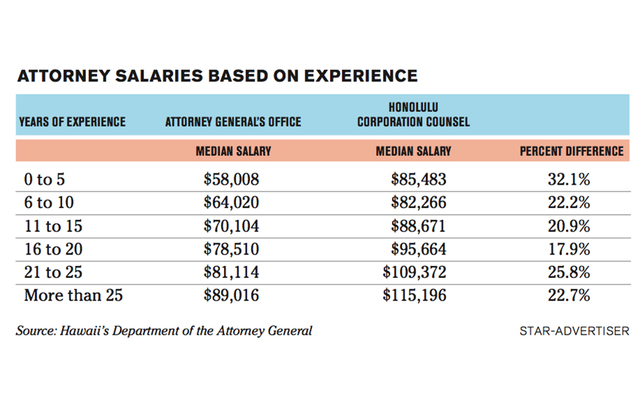The state agency responsible for enforcing and processing child support payments is facing a $1.3 million hit to its budget for the 2017 fiscal year that begins in July — a loss that will hamper customer service and overall operations, according to officials who oversee the department.
The Child Support Enforcement Agency, which falls under the Department of the Attorney General, is facing a 10 percent cut in state general fund appropriations, or $436,935. But because the federal government matches the state funding 2-to-1, the loss is felt all the more, said Lynette Lau, the agency’s administrator.
“Any time there is any kind of restriction on our budget, it is always hard,” she said, adding that the funding was meant to fill vacant positions.
The proposed cut was one of the issues highlighted Tuesday during a legislative briefing at the state Capitol to review Gov. David Ige’s 2017 fiscal year budget proposal, which he submitted to lawmakers last month.
It’s now up to the Legislature in the coming months to approve a final budget. Lawmakers can amend the budget, but Ige has line-item veto powers and can choose not to release funding for certain projects or agencies.
Hawaii’s Child Support Enforcement Agency has struggled in the past. A 2013 congressional report found that Hawaii ranked last in the country for collecting overdue child support payments.
“I think we need to emphasize to the governor the loss of this kind of funding,” said Sen. Suzanne Chun Oakland (D, Downtown- Nuuanu-Liliha).
Attorney General Doug Chin responded that the agency “will make sure to re-emphasize that.”
Chin is also requesting $1.9 million to boost the salaries of about 170 deputy attorneys general who work in his office to close a salary gap between them and other public-sector attorneys, particularly those who work for the City and County of Honolulu.
Chin had initially requested $4.2 million in deputy salary increases, but Ige approved only $1.9 million, according to budget documents.
On average, a deputy attorney general receives about 24 percent less pay a year than attorneys who work for the city Department of Corporation Counsel, which is essentially the AG’s city counterpart.
The low salaries are making it difficult for the office to recruit and retain attorneys, while contributing to low employee morale, according to reports Chin submitted to the Legislature.
“Recently some well-qualified applicants stated that they chose not to pursue our available positions because the salary was lower than expected,” according to budget materials provided to lawmakers. “Current delays in our services to our clients are due in some part to an inability to fill positions.”
The documents warn that at some point the state may be “disadvantaged legally” because legal advice and services are delayed.
A new attorney starting with the attorney general’s office earns a median salary of $58,008, according to the analysis. By comparison, starting salaries at the city Office of Corporation Counsel are about $85,483 — a difference of 32 percent.
The discrepancy remains significant among experienced attorneys. Deputy attorneys general with more than 25 years of experience earn a median salary of $89,016, compared with city attorneys who earn $115,196.
“Really, the request is a request for parity,” Chin said. “To our minds, we do similar if not more extensive work.”
Lawmakers questioned Chin on how he would determine the level of raises, which would be partly merit-based.
Chin said the raises would be based on evaluations by supervisors as well as a peer group.
Sen. Donna Mercado Kim (D, Kalihi Valley-Moanalua-Halawa) grew skeptical at one point during the hearing, pointing out the underperformance of the agency’s Medicaid fraud unit.
“If someone’s not performing, you move them into another position,” she said. “Now you’re going to give them raises?”
Chin said that performance would be factored into any salary increase.

